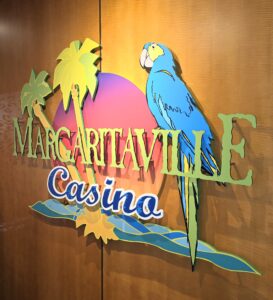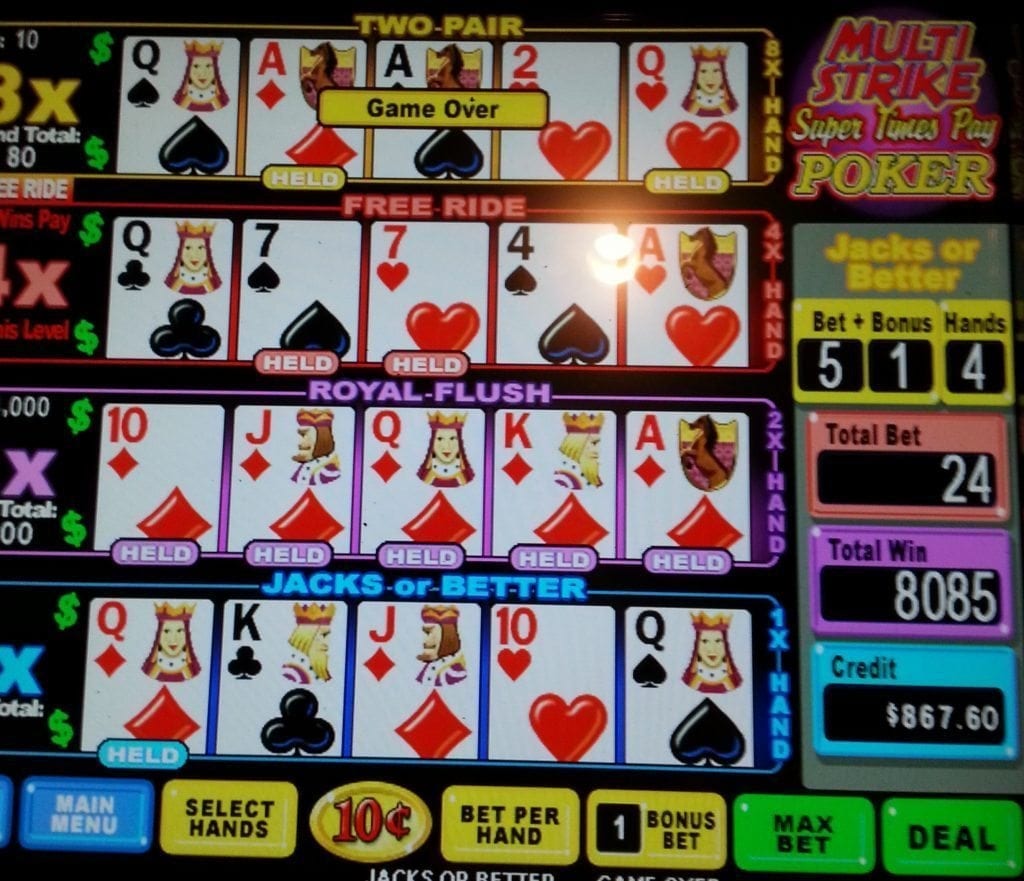 Looking For Love In All The Wrong Places
Looking For Love In All The Wrong Places
There’s an old joke about a drunk on his hands and knees looking for something under a streetlight. The beat cop comes up and asks him what he’s doing.
“I’m looking for my car keys,” the drunk responds.
“Where’d you lose them,” the cop asks.
“About a block down the street.”
“Then why on earth are you looking here?”
“Because the light is better here.”
We smile at this idiocy. Looking where the light is makes no sense at all if there’s no reason to believe that the keys are actually there. And yet, video poker players do the equivalent of this all the time.
I’ve taught hundreds of video poker classes through the years, and at well over half of these classes, someone has asked me some variation of, “How much money should I lose before I change machines?”

Finding The Video Poker Keys
This is the equivalent of looking for the keys under the streetlight. It’s easy to know that you’ve just lost $20 (or $200 or $2,000). Since this information is so easy to obtain, players WANT to be able to use this information to their advantage. Unfortunately, the information is useless.
The secret to which machine to play (i.e., where you really dropped your keys in our extended metaphor) is a mixture of how much the machine returns on average (i.e., 9/6 Jacks or Better returns 99.54%; 5-of-a-kind Joker Poker returns 97.19%, etc.), how well you play (i.e., do you know the game perfectly or do you make mistakes?), how much the slot club pays (i.e., how much cash back, or room comps, or airfare reimbursement, etc.), and finally, what promotions are in effect (i.e., is today double points? Or do you get paid an extra fifty coins for a certain 4-of-a-kind?).
How the machine has performed over the last half hour is totally irrelevant.
Players often get angry when I tell them this. They say something like, “How can that be? You can’t win without full houses and I haven’t seen one in twenty minutes. It MUST be better to move to another machine.”
The fallacy to this logic is that it presumes that whatever the last twenty minutes have been like, the next twenty minutes will be similar. This simply isn’t something you can depend on. The next twenty minutes will very probably be different than the last twenty minutes and this will be true whether you stay on the same machine or move to another.
Heaven Or Hell

Take the game Double Double Bonus, for example. This is a “heaven or hell” type of experience. When you hit a 4-of-a-kind, particularly those special ones with a kicker, your score goes up very quickly. If you don’t hit a 4-of-a-kind for a while, your score plummets precipitously. Regular players of the game know this to be true.
So let’s say your score has been in a freefall for twenty minutes straight. Is this a sign the machine is “cold” or “bad” or something? Not at all. This is a typical session for this game. Of the next 100 times you play this game, at least 75 of them will have this kind of a freefall during much of your session. It might be a little bit faster this time, or a little bit slower, but it’s normal nonetheless. Whether you change machines or not, your score will continue to spiral downward until you hit a 4-of-a-kind. (And then it will go down, down, down again until you hit ANOTHER 4-of-a-kind.) There is absolutely no reason to believe that the current machine will connect any faster or slower than any other machine with the same pay schedule.
Part 2 coming soon.
Be sure to check out some of our other articles on casino loyalty programs & casino gaming :
Casino Loyalty Cards are Similar to Those of Airlines and Hotels — But Not the Same
Video Poker vs. Regular Poker
Why I Prefer Video Poker To Slots
Video Poker vs. BlackJack
Why You Might Be Disappointed With A Straight Flush Jackpot
Bob Dancer is the premier video poker writer and teacher in the world. He has created a number of how-to-win products available at bobdancer.com. He co-hosts a weekly radio show called Gambling with an Edge, which is also archived on his website. (The show is also available on iTunes.)
Bob Dancer is the premier video poker writer and teacher in the world. He has created a number of how-to-win products available at bobdancer.com. He co-hosts a weekly radio show called Gambling with an Edge, which is also archived on his website.













